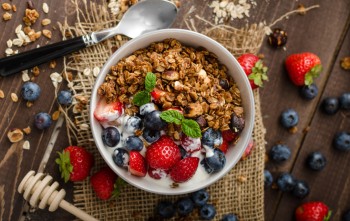Blood Sugar: A Complete Guide to Managing Sugar Levels

Health has become a widely discussed topic recently, as many people have started realizing the importance of maintaining a healthy lifestyle. One crucial aspect of health is blood sugar levels. Below is an overview of blood sugar and various related explanations, including ways to manage blood sugar effectively.
Health is one of the most important aspects of life. A healthy body condition is essential for people to carry out daily activities and work as usual. Therefore, it is vital to care for and nurture the body to maintain good health.
Human health comprises many aspects, all of which need careful attention to avoid future risks. Among these, blood sugar levels are one essential aspect that requires proper monitoring and management to prevent health risks that could be life-threatening over time. Uncontrolled blood sugar can have adverse effects, such as the onset of diabetes.
Diabetes is a serious disease that poses a threat to many lives. Numerous cases worldwide show that diabetes is not to be taken lightly. Since diabetes is closely linked to blood sugar levels, it’s essential to control these levels as well as possible.
What Is Blood Sugar?
In general, blood sugar is defined as the primary sugar found in the blood, also known as blood glucose. It serves as the body’s main energy source. Without well-controlled blood sugar, individuals may face various health issues, including a lack of energy.
Blood sugar originates from the food consumed daily. The body breaks down most food into glucose, releasing it into the bloodstream. When blood sugar levels rise, the pancreas signals the body to release insulin.
Insulin is a hormone that helps glucose enter body cells, where it is used for energy. Thanks to this process, you can perform daily activities optimally.
How Does the Body Manage Blood Sugar?
Blood sugar plays a significant role in providing energy for the human body, helping people work and engage in activities without feeling fatigued. Therefore, it is essential for blood sugar management in the body to function optimally to avoid any negative effects.
Two hormones help regulate blood sugar levels: insulin and glucagon. Glucagon aids in breaking down blood sugar, while insulin prevents it from rising too high. These two hormones need to work in balance to manage blood sugar properly and maximize energy production.
Factors Affecting Blood Sugar Levels
Various factors influence blood sugar levels. Here are some of the main factors:
Carbohydrate Intake
It’s essential to monitor and control daily carbohydrate intake, particularly for those at risk of diabetes. Regulating carbohydrate consumption based on recommendations can help manage blood sugar effectively.
Fat Intake
Excessive consumption of certain fats can destabilize blood sugar levels. It’s wise to limit intake of saturated and trans fats, as they can lead to insulin resistance.
Alcohol Consumption
Drinking alcohol, even as a habit or for relaxation, requires attention to quantity and quality. Avoid excessive consumption, especially on an empty stomach.
Meal Timing
Consistent meal timing plays a role in maintaining stable blood sugar levels. Discipline in meal times prevents negative effects on blood sugar, such as spikes or crashes.
Sleep Quantity and Quality
Quality sleep refreshes the body for normal activities the next day. Proper sleep duration supports overall health, including blood sugar management. Both too little and too much sleep can affect insulin use in the body.
Stress
Excessive stress can impact blood sugar levels, potentially causing them to spike. Managing stress is crucial for balanced blood sugar levels.
Ways to Maintain Healthy Blood Sugar Levels
To keep blood sugar levels healthy, here are some strategies you can apply according to your condition and needs:
Monitor Blood Sugar Regularly
Regular blood sugar checks help you track your levels, ensuring they are within a healthy range.
Prioritize Meal Timing
Irregular meals and skipping meals can cause rapid fluctuations in blood sugar. Ensure consistent meal timing for stable blood sugar levels.
Choose Healthy Foods
Opt for low-calorie foods that are rich in fiber and low in saturated fat, salt, and sugar. For those who enjoy sweet foods but want to avoid blood sugar spikes, consider natural sweeteners like palm sugar or dates.
Drink Water Regularly
One simple way to control blood sugar is to consume adequate water daily.
Exercise
Regular and moderate exercise promotes a healthier lifestyle. Blood sugar levels are better managed with sufficient physical activity.
One additional way to manage blood sugar is by replacing your usual snacks with healthier alternatives like YAVA Granola Puffs, made with natural ingredients and sweetened with low-glycemic palm sugar.


















